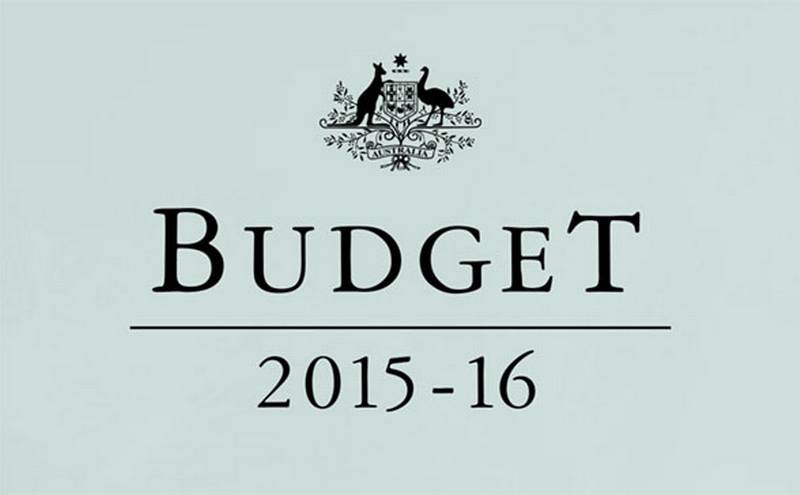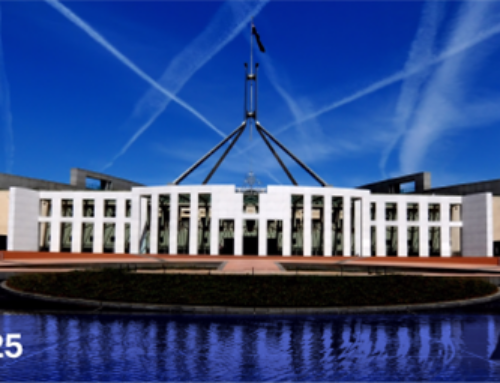Tonight, 12 May 2015, the Treasurer, Joe Hockey delivered his second budget in which he focused on small business, families and transitioning the economy away from a reliance on mining. This newsletter summarises the key points from the 2015/16 Federal Budget.
Good news for super – no major changes
The Treasurer announced that there would be no major changes to the superannuation system. This is good news for those building their retirement savings, who will be able to continue to grow their super and plan for their retirement with confidence.
Changes to Age Pensions
The Government has announced changes to the Age Pension in the following areas:
Indexation of Age Pension payments
The Government has removed its proposal to restrict the indexation of Age Pension payments to inflation (CPI). The Age Pension will now be indexed at the higher rate of either inflation (CPI) or Average Weekly Ordinary Time Earnings.
Assets test threshold changes from 1 January 2017
The Government has announced the following changes to the Age Pension assets test thresholds:
Full pension threshold changes
| Homeowner | Non-homeowner | |||
| Current | From 1/1/17 | Current | From 1/1/17 | |
| Single | $202,000 | $250,000 | $348,500 | $450,000 |
| Couple | $286,500 | $375,000 | $433,000 | $575,000 |
No pension threshold changes
| Homeowner | Non-homeowner | |||
| Current | From 1/1/17 | Current | From 1/1/17 | |
| Single | $775,500 | $547,000 | $922,000 | $747,000 |
| Couple | $1,151,500 | $823,000 | $1,298,000 | $1,023,000 |
Any age pensioner who no longer qualifies for the Age Pension from 1 January 2017 is guaranteed to continue to be eligible for the Commonwealth Seniors Health Card.
Defined benefit super income stream exclusion reduced
From 1 January 2016, the level of income drawn from a defined benefit superannuation scheme which can be excluded from the pension income test, will be capped at 10%.
Access to Government pensions while overseas
From 1 January 2017, the period of full entitlement will be reduced from 26 weeks to 6 weeks for pensioners who are overseas and recieve the Age Pension, Disability Support Pension, Wife Pension and Widow B Pension.
After being overseas for 6 weeks, recipients will recieve a reduced pension payment which is proportional to the amount of time that the recipient was a permanent resident, living in Australia, between the age of 16 and their Age Pension Age. This change only affects pensioners who have lived in Australia for less than 35 years.
Personal Income Tax
In the 2013 Federal Budget, the then Government proposed to repeal the already legislated increase in the tax-free threshold to $19,400, but this was never implemented.
The current Federal Government has proposed legislation to repeal the increase in the tax-free threshold while increasing the tax rate from 32.5% to 33% for incomes of $37,001 to $80,000.
If this legislation passes, then from 1 July 2015, the tax-free threshold will remain at $18,200 and the marginal tax rate would remain at 32.5% for incomes of $37,001 and $80,000.
Personal income tax rates and thresholds
| 2014/2015 | 2015/16 & 2016/17 | ||
| Threshold | Rate* | Threshold | Rate* |
| $18,201 | 19.0% | $19,401 | 19.0% |
| $37,001 | 32.5% | $37,001 | 33.0% |
| $80,001 | 37.0% | $80,001 | 37.0% |
| $180,001 | 45.0% | $180,001 | 45.0% |
*excluding the 2% Medicare Levy and the 2% Temporary Budget Repair Levy
Good news for small business
The Government has announced a range of measures aimed at stimulating the small business sector.
Tax cuts for small business
Small incorporated businesses with turnover of less than $2m will have their company tax rate cut by 1.5% to 28.5%. The corporate tax rate for large businesses will remain at 30%. Almost 96% of Australian business will recieve this tax cut.
Small unincorporated businesses will get a 5% tax discount up to $1,000 per annum.
Immediate tax deduction available for assets worth less than $20,000
Small businesses can immediately claim a tax deduction for the full purchase value of any individual assets which cost less that $20,000. This initative will apply from 7:30pm on 12 May 2015 to 30 June 2017.
No FBT on work related portable electronic devices
The Government has announced an extension to the Fringe Benefits Tax (FBT) exemption for small businesses which provide their employees with work-related portable electronic devices. The FBT exemption will now apply to multiple work related mobile devices, even where the devices perform the same/similar functions. Previously, the FBT exemption was only available on a single device of each type. This extension will take effect from 1 April 2016.
New Child Care Subsidy System from 1 July 2017
The existing Child Care Benefit rules will remain unchanged up to 30 June 2017. From 1 July 2017, the following key changes will apply:
- The existing Child Care Benefit and Child Care Rebate systems will be abolished.
- A new single Child Care Subsidy will apply.
- Families earning up to $65,000 pa will receive a subsidy equal to 85% of their child care fee, up to an hourly fee cap. The subsidy rate gradually reduces to 50% for families earning $170,000 pa or more.
For families earning $185,000 pa or more, the annual cap on the total assistance provided per child per year will increase from $7,500 to $10,000. - Eligibility for the Child Care Subsidy will be assessed according to an activity test closely aligned with the hours of subsidised care with the amount of work, training, study or other activity such as volunteering undertaken by the child’s parent/s.
Other notable points
Access to super on terminal illness
- From 1 July 2015, earlier access to super will be allowed for those who are diagnosed with a terminal medical condition.
Lost and unclaimed super
- Redundant reporting obligations will be removed and administrative arrangements will be streamlined for lost and unclaimed superannuation.
Low Income Super Contribution (LISC)
- No changes to super in this Budget means that the LISC will continue until 30 June 2017.
Family Tax Benefit (FTB) Part A
- FTB Part A will cease from 1 July 2016.
- From 1 January 2016, families will only be able to access FTB Part A for 6 weeks in a 12 month period while overseas.
Youth unemployment
- The amount of time that those aged under 25 will have to wait before being able to access unemployment benefits will be reduced from 6 months to 4 weeks.
- Employers who hire job seekers aged under 30 will be eligible to recieve a subsidy of $6,500 over 12 months.
Taxation of employee share schemes
- From 1 July 2015, employees will generally not have to pay tax on shares or options they are issued until they receive a financial benefit from them.
Primary Producers
- Primary producers will be able to claim accelerated depreciation for water facilities, fodder storage and fencing from 1 July 2016.
Government paid parental leave scheme
- From 1 July 2016, it will no longer be possible to access the Government’s Parental Leave Pay scheme in addition to an employer paid parental leave entitlements.
Temporary Budget Repair Levy
- No changes to the Temporary Budget Repair Levy were announced and it is therefore expected to be removed from 1 July 2017.
Medical Research Future Fund
- The Government will distribute $400m from this fund with the first $10m to be distributed in 2015/16.
Click here to download this newsletter






Leave A Comment
You must be logged in to post a comment.